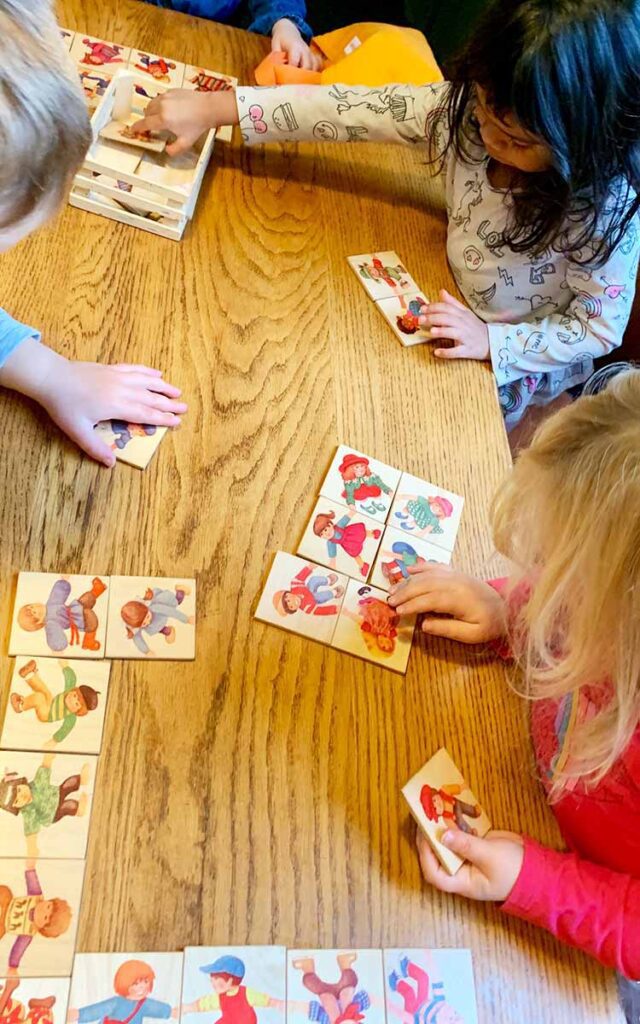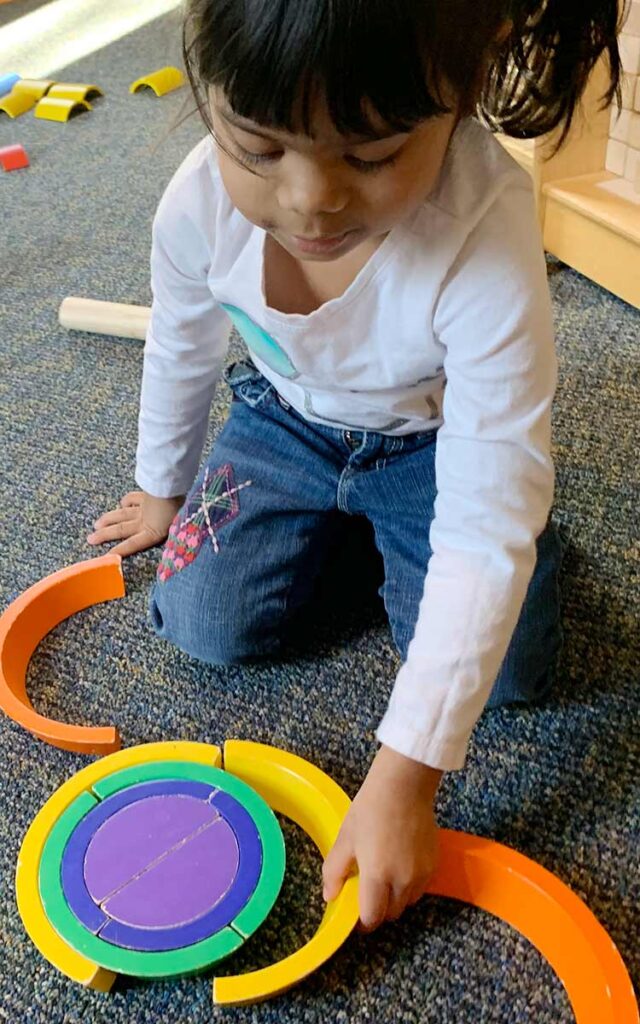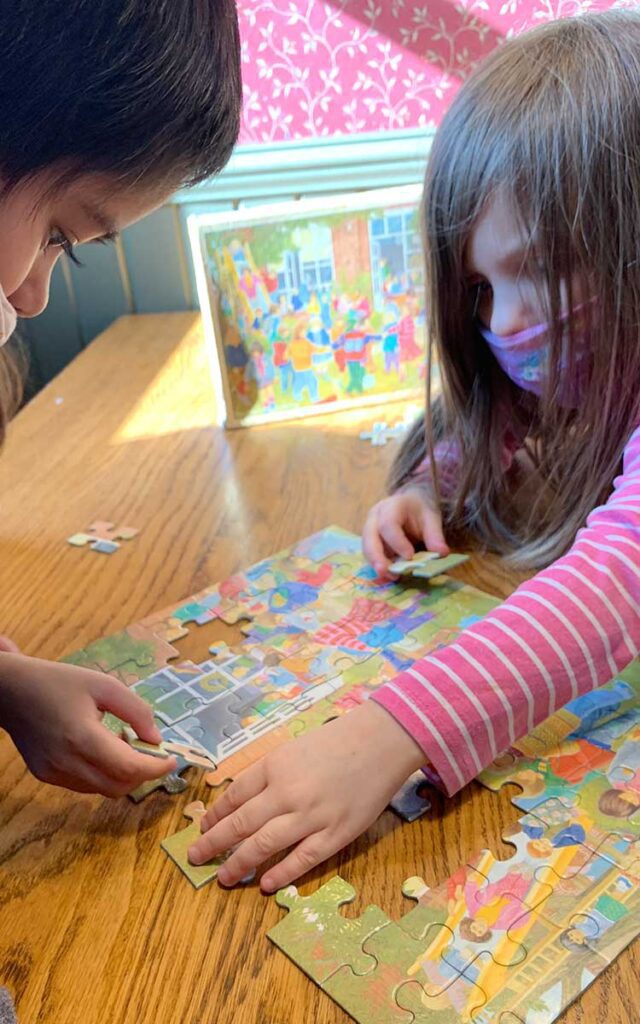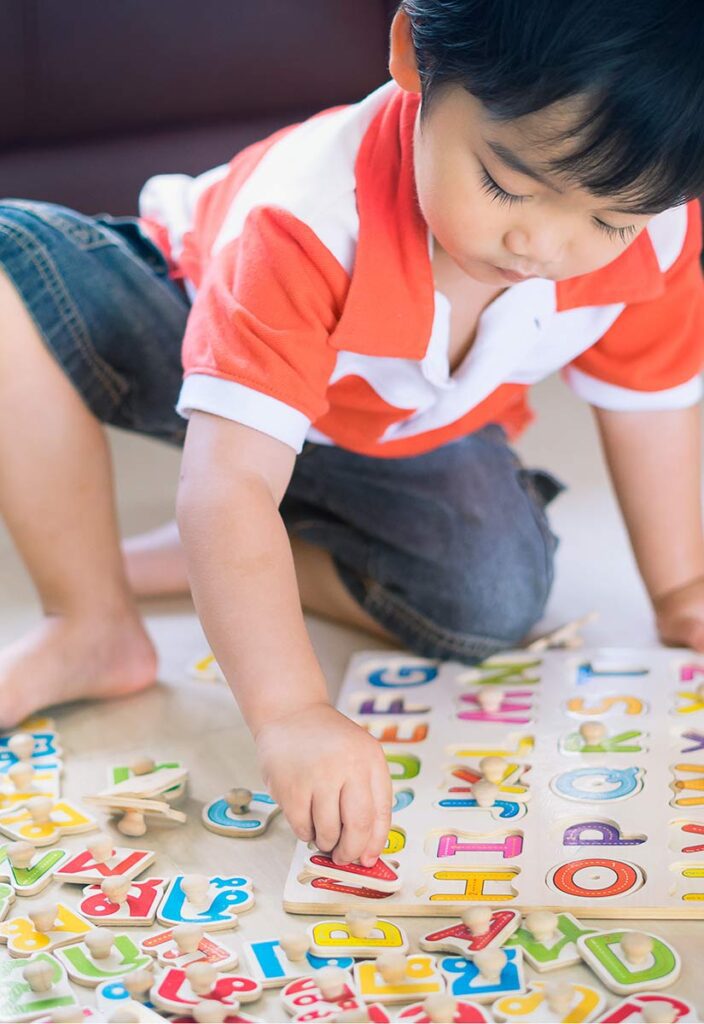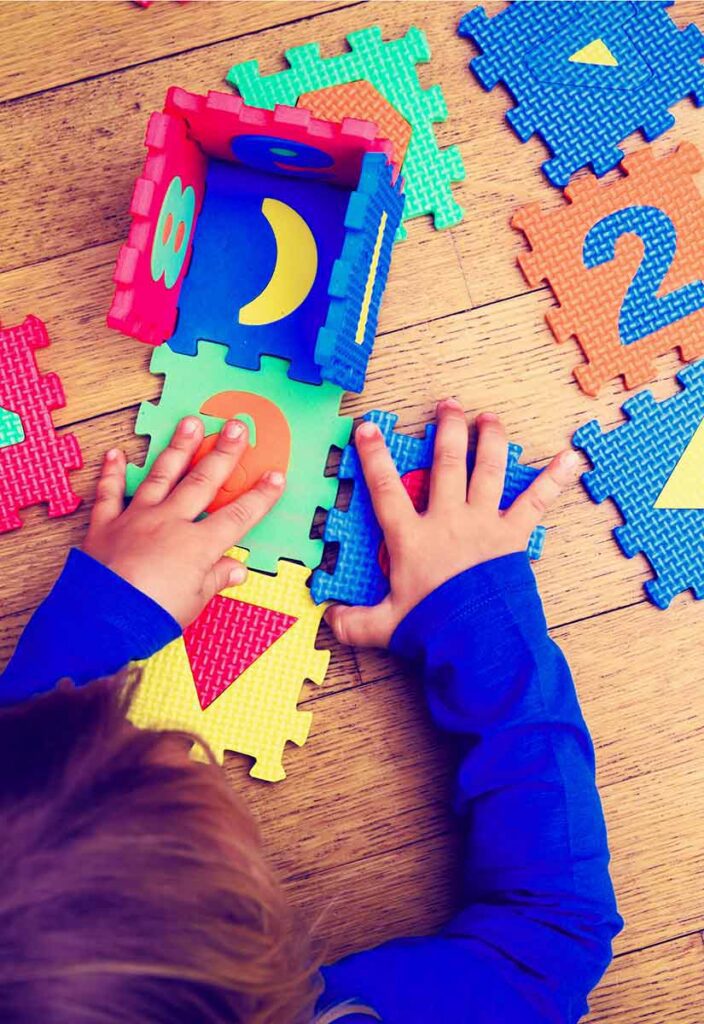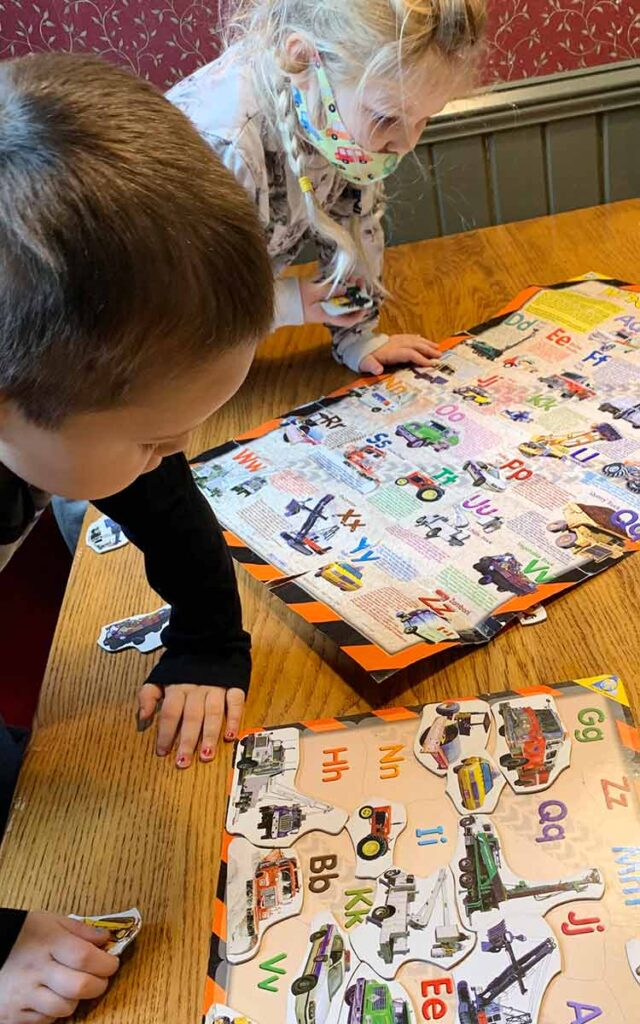Puzzle Play
Introduction
Puzzles offer many benefits and enable children to learn important skills as they play. Whether children are working with a knob puzzle, a floor puzzle or a 100-piece jigsaw puzzle, they are developing their spatial awareness, shape recognition, hand-eye coordination, problem-solving abilities, critical-thinking skills and fine-motor skills. When they solve puzzles cooperatively with family members or friends, they're also improving their social skills!
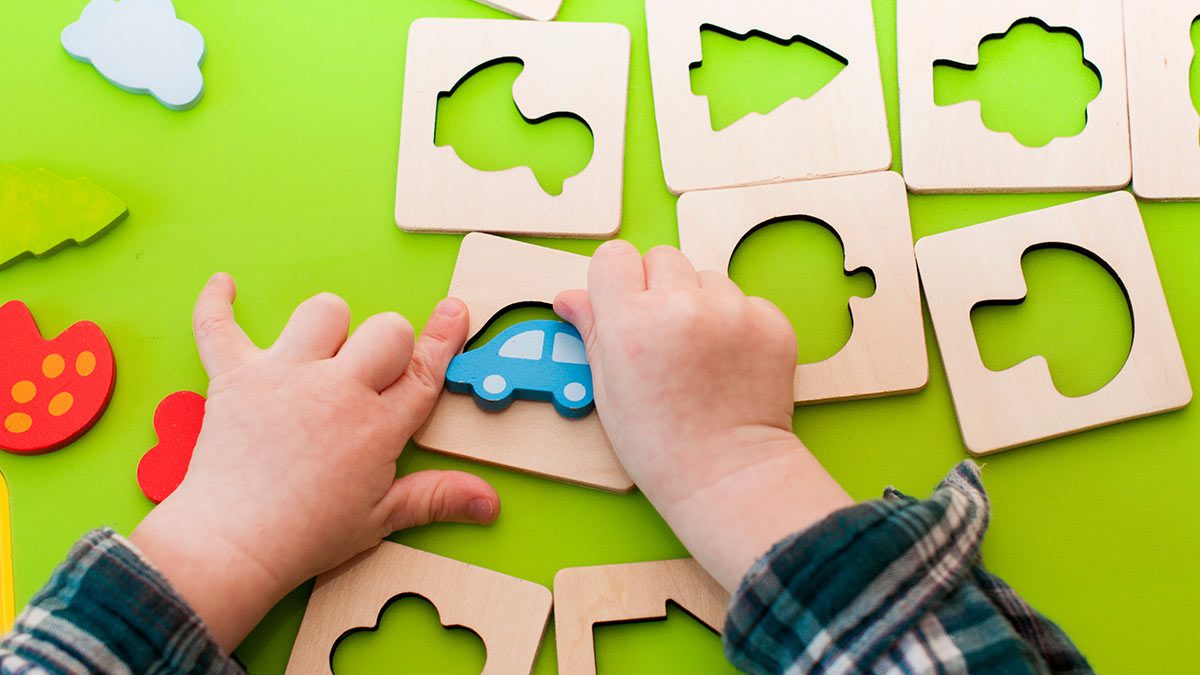
Gather Materials
- Puzzles
Note: Small parts pose a choking hazard and are not appropriate for children age five or under. Be sure to choose lesson materials that you feel are safe for your child and that you are comfortable letting your child use.
Activity
In order to complete a puzzle, children need to pick up the puzzle pieces, pinch and hold them, move them around and manipulate them into the correct position. This helps them develop dexterity and builds the small muscles in the hands and fingers. Children with well-developed fine-motor skills tend to find it easier to write, draw and play musical instruments.
Children will also need to determine how to orient the puzzle pieces to complete the puzzle. Sit back and watch as your child flips, turns and rotates the pieces to figure out where and how they fit. Observe the choices that your child makes and see how your child's methods and strategies change as he or she begins to understand how the pieces fit together. This process builds critical-thinking and problem-solving skills and leads to rich learning adventures as your child's brain, eyes and hands work together to solve the puzzle.
Be sure to match the puzzle to your child's current developmental stage to prevent frustration and help your child get the most out of puzzle play.
As your child's confidence and problem-solving skills develop, introduce puzzles that are slightly more challenging. If a puzzle is a little too hard to complete independently, this may be a good time for siblings, parents or caregivers to introduce new puzzle-solving strategies.
While working on a puzzle with family members or friends, your child will also gain valuable experience with communication, sharing and turn-taking as the "puzzle team" works together to achieve a common goal.
Here are some of the skills that children build as they work on puzzles:
- Classification: Children learn how to determine what goes where.
- Independent Problem Solving: Children hone their problem-solving skills when they work on puzzles alone.
- Matching: Children learn how things fit together as they work on pairing and matching.
- Time: Without a clock in sight, children recognize that their completion times improve as they begin to think more logically and develop strategies such as pre-sorting puzzle pieces by color, shape or pattern.
- Spatial awareness: Children become aware of how small pieces combine to create a bigger picture. The puzzle-solving process also helps children develop their depth and distance perception.
- Concentration: Children must complete a puzzle to feel a sense of accomplishment. This helps lengthen children's attention spans and improves their concentration skills.
Puzzles come in a wide variety of types and sizes—from foam puzzles for babies to large floor puzzles for toddlers and preschoolers. The vast range of puzzle topics on the market (and available to check out for free from your local library) will enable you to explore topics that your child may already love--from dinosaur and farm animal puzzles to underwater ocean scenes.
Have fun introducing your child to a love of math through puzzle play!
